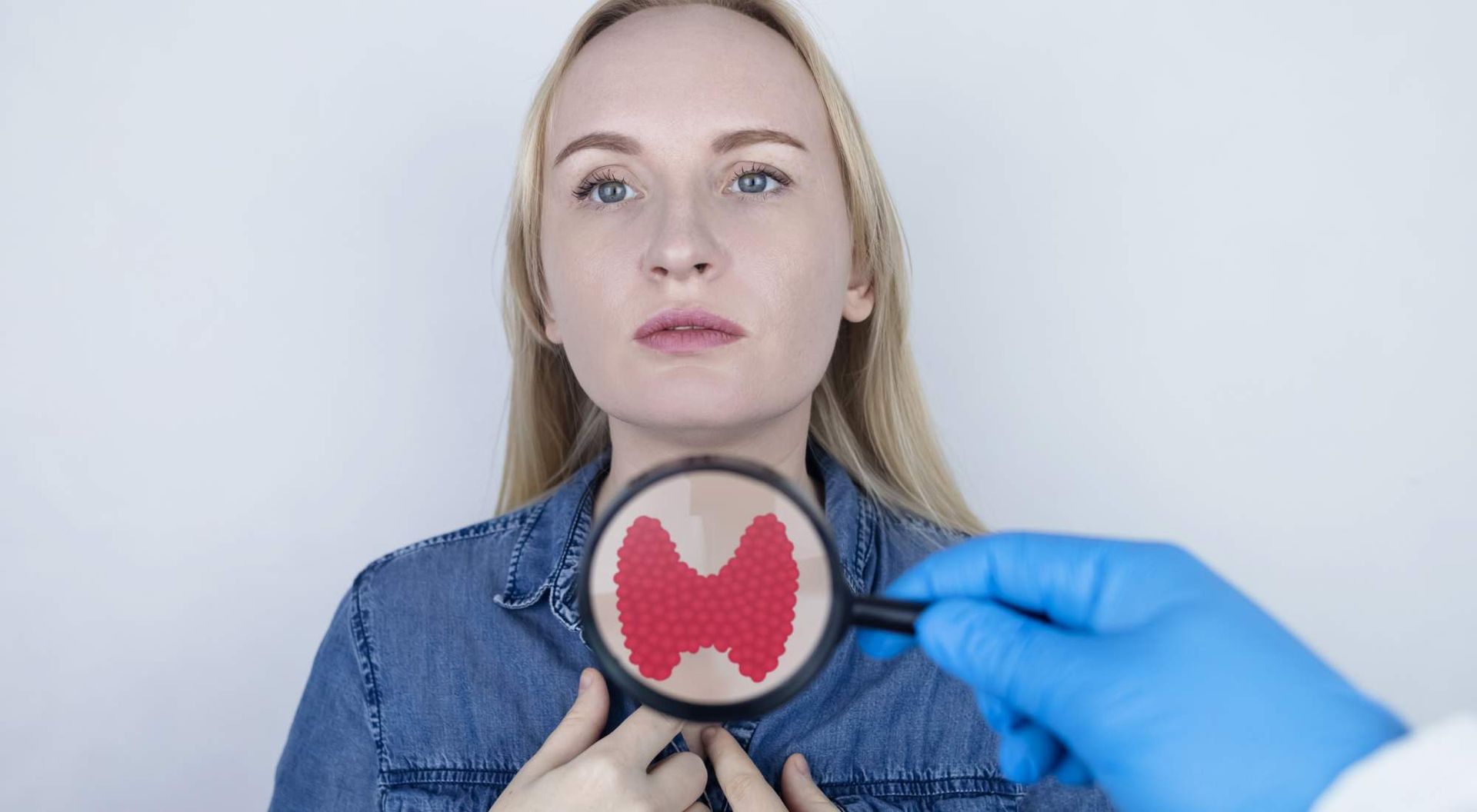Knowing What Can Cause Hormonal Imbalance Can Help You Understand Your Unique Body and How It’s Functioning
"The content below is not intended to be a substitute for professional medical advice, diagnosis, or treatment. Always seek the advice of your physician or other qualified health provider with any questions you may have regarding a medical condition."
Are you currently experiencing:
- Decreased energy levels
- Hot flashes
- Mood swings; or
- Night sweats?
It sounds as if you might be suffering from a possible hormonal imbalance. It’s not fun, is it?
The good news is there are things you can do to make this time in your life more comfortable.
Keep reading and you will learn:
- What causes hormonal imbalance in the body
- What to do if you think you have a hormonal imbalance
- In the case of hormonal imbalances, what is the underlying cause
- How to determine what is causing your hormonal imbalance; and
- Much more
Table of Contents
Is it Normal to Experience Hormonal Imbalance?
Our bodies go through several natural phases at different points in life that may cause hormonal imbalance. However, some causes of hormonal imbalance are not "normal."
Hormonal imbalance can be caused by other health conditions and environmental factors.
A hormonal imbalance can affect the tiniest processes of your body. Hormones power the body; therefore, they control everything that happens in the body. Because of their importance to the body, any slight change in hormone levels may affect the body’s output.
As the body ages, it is normal for hormonal levels to fluctuate and change from time to time.
However …
- If the fluctuations exceed the normal limit; or
- If there is an external factor causing a change in the normal levels
... the body will begin to have problems.
What Is the Root Cause of Hormonal Imbalance?
The endocrine glands control our hormones. If any of these glands malfunction, hormones become imbalanced.
Hormone imbalance can have a profound and disruptive effect on daily life, causing disruptions such as:
- A loss of libido,
- Memory issues; and
- Sleep problems.
Long term, this imbalance can weaken your:
- Muscles,
- Bones; and
- Cardiovascular health
When diagnosing an imbalance, getting to the root cause is often the most challenging aspect.
At
HealthierU, we get to the
root cause of hormone dysfunction by using natural testing methods.
What Are the Endocrine Glands?
You have several glands that make up your endocrine system.
These glands produce and release hormones found all over your body. These glands and hormones perform various functions related to the maintenance and growth of the human body.
Following is a list of the endocrine system glands and their function:
- Pituitary — Directs the functions of all other glands. By sensing the body's needs, the pituitary gland sends signals to various organs and glands to regulate their function and maintain an appropriate environment.
- Thyroid — Releases hormones that ensure the body has the energy needed to get through the day. This influences the body’s metabolism rate.
- Parathyroid — Produces a hormone, parathyroid hormone, that affects calcium levels in the body.
- Adrenal — A stress hormone that assists the organism in either facing a dangerous situation or avoiding it. This is known as “Fight or Flight.”
- Pancreas — Produces digestive enzymes and hormones such as insulin and glucagon. Essentially, it is responsible for converting the food we eat into fuel for our bodies.
- Gonads — Men and women's gonads are responsible for producing sperm and ova and secreting hormones. In men, gonads are called testes; gonads are called ovaries in women.
- Pineal —
Produces a hormone known as
melatonin which influences the body’s internal clock. If you have a sleep disorder, it could signify that your pineal gland is not producing the correct amount of melatonin.
What Causes Hormonal Imbalance Will Vary by Individual
Everyone’s body is different, and what causes abnormal hormone levels will vary from person to person.
Let’s take a look at a few different causes of hormone imbalance.
Medical Conditions
Many different medical conditions can affect hormone production. Some of these include:
- Diabetes
- Hyperthyroidism
- Hypothyroidism
- Addison’s Disease
- Cushing’s Syndrome
- Acromegaly
- Hyperglycemia
- Hypoglycemia
- Cancers that affect endocrine glands
- Pituitary tumors
- Turner’s Syndrome
- Iodine deficiency
This is not a comprehensive list — if you feel as if you are suffering from a medical condition affecting your hormones, please speak to a medical professional.
Lifestyle Habits
Along with medical conditions, lifestyle habits can also negatively affect hormone levels. A few include:
- Nutrition and diet — What you put into the body will impact how it functions.
- Alcohol consumption — Can often result in estrogen dominance and increase the risk of serious problems such as liver damage and pancreatitis.
- Caffeine consumption — When too much caffeine is consumed, the adrenal glands produce more stress hormones.
- Smoking — Affects reproductive hormones such as estrogen and testosterone.
- Stress — You might experience hormonal fluctuations and imbalances when you are going through a stressful period.
- Lack of sleep — Sleep deprivation has the same effect on the body and hormone levels as stress.
- Exposure to endocrine-disrupting chemicals
— The name says it all. Endocrine-disrupting chemicals disrupt the endocrine system and can have disastrous effects.
Environmental Factors
Environmental factors also play a large role in hormonal imbalances. We can be exposed to endocrine-disrupting chemicals without even being aware of it.
Extracellular chemicals that disrupt hormone action are known as endocrine-disrupting chemicals, or endocrine disruptors.
Exposure to endocrine-disrupting chemicals, such as ...
- Toxins
- Chemicals; and
- Pollutants
… can negatively impact hormonal levels in the body.
Products that can contain endocrine-disrupting chemicals include:
- Cleaning products
- Pesticides
- Personal care products
- Certain antibacterial products
- Food storage and wrappers
- Old cookware; and
- Some textiles
The Environmental Working Group (EWG) is an excellent resource for more information about selecting safer products.
Gender-Specific Hormonal Imbalance
What causes hormone imbalance symptoms can vary between women and men.
Hormones can affect women and men almost identically; however, certain hormones are produced only in specific events and in certain sex.
The treatment of a hormonal imbalance varies based on the cause and the individual. For men and women, different treatments are available.
Since treatment depends on the cause, let’s take a look at a few of the reasons hormonal imbalances affect women and men differently.
What Causes Hormonal Imbalance in Females?
When a woman’s hormonal system is not working correctly, some of the following symptoms might be present:
- Weight gain
- Sweating
- Fatigue
- Excessive hair growth
- Changes in menstruation
- Infertility
- Thinning hair
- Insomnia
- Headaches
- Depression
- Low sex drive
- Increased sensitivity to hot or cold
There are also medical conditions specific to women which can affect the hormones, like:
- PCOS
- Birth control
- Congenital adrenal hyperplasia
- Hirsutism
- Ovarian cancer; and
- More
What Causes Hormonal Imbalance in Males?
When a man’s hormonal system is not functioning correctly, some of the following symptoms might occur:
- Fatigue
- Lack of energy
- Mood changes
- Depression
- Hair loss
- Decrease in bone mass
- Muscle weakness
- Poor recovery from exercise
- Gynecomastia
In addition to the universal things mentioned in the previous sections, men can also face conditions that women will not experience, such as:
- Prostate cancer
- Hypogonadism
- Testicular disease; and
- Male only genetic conditions
- Loss of muscle mass and strength
- Weight gain
- Lack of or reduced sexual desire
How to Determine if You Have a Hormonal Imbalance
If you or your healthcare provider suspect that you may be suffering from a hormonal imbalance, you can conduct laboratory tests to confirm it.
You can start reversing the hormone imbalances once you know which ones are causing the trouble.
In addition to laboratory tests, Nutrition Response Testing is a viable option used for testing and identifying hormonal imbalances.
How to Determine What Is Causing Your Hormonal Imbalance
Detecting a hormonal imbalance is the easy part, but how do you figure out what exactly the cause of yours is?
Your provider can run various tests to pinpoint which of the endocrine glands are impacting your body. Some of these tests might include:
- Saliva - Offers a unique and complex view of the body’s inner workings. Among the saliva, you'll find hormone-containing liquids leaking from your gums.
- Blood Test — Will measure exact levels of tested hormones in the blood as well as the standard reference range for those specific hormones.
- Follicle-Stimulating Hormone (FSH) Test — FSH is produced by your pituitary gland. Excessive or insufficient FSH levels can cause a hormonal imbalance.
- Ultrasound — If your doctor is concerned about a particular gland in your body, he or she might order an ultrasound.
- Sperm Count — If a man is concerned about specific symptoms, a sperm count may provide more information.
- Pap Smear —
The results of a pap smear can give a woman more information if she has concerns about specific symptoms.
Nutrition Response Testing
As mentioned earlier, Nutrition Response Testing is a viable testing option.
The Nutrition Response Test is a non-invasive and clinically tested method of determining the underlying cause of hormonal imbalances.
Simply put, your body's nutrition response is how it responds to what you feed it. So it could be that food is the culprit if you feel like your hormones are out of whack.
In Nutrition Response Testing, your body demonstrates a series of symptoms to let you know exactly what is wrong. You can potentially eliminate your health-related ailments with Nutrition Response Testing and nutritional therapy by understanding your symptoms.
Nutrition Response Testing is composed of two parts:
- Analysis; and
- Customized health improvement program based on clinical nutrition
When you correct the root of your health issues with nutrition and supplements, your body responds differently.
Within four to six weeks of adhering to their individualized nutrition programs, patients will typically see positive changes in their health status.
HealthierU: Discover the Root Cause of Your Hormonal Imbalance
If you are ready to discover how to test for a hormone imbalance naturally, you have come to the right place.
At HealthierU, we specialize in all things natural.
Through Nutrition Response Testing, Dr. Sergi can help to pinpoint exactly what is causing your problem and then formulate a plan to address the issue naturally, without using traditional medications.
We utilize a holistic approach to get to the root of your hormonal problems and deal with them in a way that is:
- Safe
- Natural; and
- Effective
If you are ready to take control of your hormonal health safely and naturally,
contact us today.






